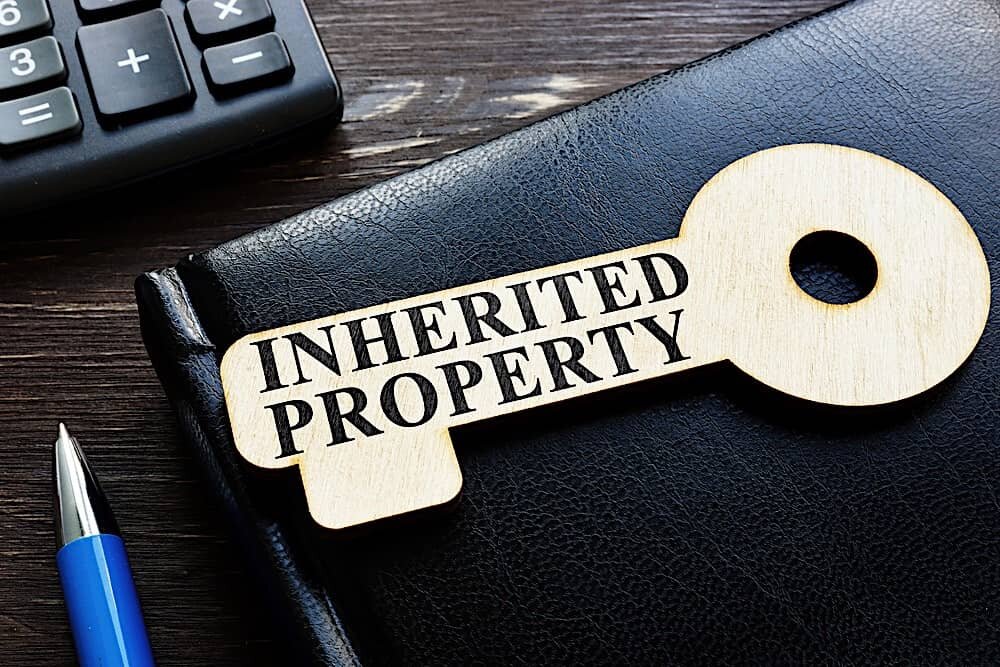Table of Contents
- Importance of Understanding the Process
- Understanding the Legal Aspects of Inherited Property in Florida
- Steps to Selling Inherited Property in Florida
- Exploring Selling Options and Considerations
- Conclusion

Introduction
Selling inherited property in Florida is a significant undertaking that requires a comprehensive understanding of the process. This guide aims to equip you with the necessary information and insights to navigate this journey successfully. By understanding the legal aspects, following the step-by-step procedures, and applying the tips provided, you will be well-prepared to embark on this path with confidence.
Part I: Importance of Understanding the Process
Selling inherited property presents unique challenges and opportunities that require careful consideration and strategic planning. Without a clear understanding of the legal obligations, potential hurdles, and best practices involved, the process can become overwhelming. This part emphasizes the importance of having a firm grasp of the legal aspects, necessary steps, and essential tips to ensure a successful and efficient sale.
Part II: Understanding the Legal Aspects of Inherited Property in Florida
This section delves into understanding the legal aspects of selling inherited property in Florida. It covers topics such as probate, its distinct types, the significance of a valid will, and the role of personal representatives. By understanding these legal aspects, you can navigate the complexities of the property transfer process with confidence.
Part III: Steps to Selling Inherited Property in Florida
In this part, we outline the essential steps involved in selling inherited property in Florida. It covers conducting a thorough property appraisal and valuation, navigating legal procedures like probate and estate administration, and understanding tax implications and considerations. By following these steps, you can lay a solid foundation for a successful sale.
Part IV: Exploring Selling Options and Considerations
This section explores various selling options for inherited property in Florida. It discusses traditional listing with real estate agents, cash buyers, and other alternatives. It also highlights the benefits and drawbacks of each option, helping you make an informed decision that aligns with your goals and circumstances.
Conclusion
In conclusion, this guide equips you with the knowledge and resources necessary to navigate the intricacies of selling inherited property in Florida. By understanding the legal aspects, following the step-by-step procedures, and applying the tips provided, you will be well-prepared to embark on this journey with confidence. Remember, seeking professional guidance is always advisable to ensure the best possible outcome. Now, let us delve into the intricacies of selling inherited property in Florida and set you on the path to a successful sale.
Importance in Understanding the Process

Selling inherited property in Florida requires a thorough understanding of the process, making it a significant endeavor. Whether you find yourself as an heir navigating the complexities of probate or an executor responsible for ensuring a smooth property transfer, having a firm grasp of the legal aspects, necessary steps, and essential tips is crucial. The intricate nature of selling inherited property can be overwhelming, especially when combined with the emotional weight that often accompanies the loss of a loved one. However, with the right guidance and knowledge, you can confidently navigate this journey, ensuring a successful and efficient sale.
Inheriting property is both a financial asset and a personal legacy. It presents unique challenges and opportunities that require careful consideration and strategic planning. Without a clear understanding of the legal obligations, potential hurdles, and best practices involved, the process can become daunting and overwhelming. That’s why this ultimate guide aims to equip you with the necessary information and insights to make informed decisions, streamline the sale, and maximize the value of the inherited property.
Understanding the Legal Aspects of Inherited Property in Florida
Probate and its role in the property transfer process
When it comes to selling inherited property in Florida, one cannot overlook the pivotal role that probate plays in the property transfer process. Probate is a legal procedure that validates wills, facilitates the distribution of assets, and ensures that the wishes of the deceased are honored. It serves as a necessary step in transferring ownership of inherited property to the rightful heirs or beneficiaries.
Probate can be a complex and time-consuming process, involving various legal requirements and court supervision. It begins with the filing of a petition in the proper Florida court, typically in the county where the deceased person lived. The court then appoints a personal representative, also known as an executor or administrator, who acts as the fiduciary responsible for administering the estate and overseeing the property transfer.
During probate, the court examines the authenticity of the will, confirms the appointment of the personal representative, and ensures that all debts, taxes, and expenses are appropriately settled before distributing the remaining assets, including the inherited property. It supplies a legal framework to protect the interests of all parties involved and ensure a fair and orderly distribution process.
Types of probate in Florida
Florida recognizes several types of probate, each with its own set of rules and procedures. Understanding these distinctions is crucial in figuring out the appropriate path for transferring the inherited property.
Formal Administration: Formal administration is the most common type of probate in Florida. It applies when the estate’s value exceeds $75,000 or when the deceased person has been deceased for less than two years. It involves court supervision, detailed accounting, and notice requirements. While it may be a lengthier process, formal administration provides a comprehensive framework for resolving complex issues and disputes that may arise during the probate process.
Summary Administration: Summary administration is an alternative to formal administration when the estate’s value is less than $75,000 or if the deceased person has been deceased for more than two years. It is a simplified and expedited probate process that requires fewer court hearings and less extensive documentation. However, it is important to note that summary administration may not be suitable for all situations, especially when there are complex issues involved.
Small Estate Affidavit: In certain cases where the value of the estate is minimal, Florida allows for a streamlined process known as a small estate affidavit. This option is available when the total value of the estate, excluding exempt property and the value of the homestead, does not exceed $75,000. The personal representative can execute a small estate affidavit, under oath, stating that they are entitled to the property and requesting its transfer without the need for formal probate proceedings.
Discussing the importance of a valid will and the implications of intestate succession
Having a valid will is paramount when it comes to selling inherited property in Florida. A will is a legal document that outlines the deceased person’s wishes regarding the distribution of their assets, including the inherited property. It provides clear instructions on who should inherit the property and in what manner, eliminating ambiguity and potential conflicts among heirs.
In the absence of a valid will, the property transfer process becomes more complex, as the state’s laws of intestate succession come into play. Intestate succession refers to the legal distribution of assets when there is no will or when the will is deemed invalid. Florida’s intestacy laws determine the order of priority for the distribution of assets, including the inherited property, among the deceased person’s surviving relatives.
Intestate succession follows a predefined hierarchy, typically prioritizing the surviving spouse, children, parents, and other close relatives. The distribution is based on a set of rules that vary depending on the family structure.
Role of Personal Representatives and Their Responsibilities
Personal representatives are essential figures in the probate process and the transfer of inherited property in Florida. As court-appointed fiduciaries, they are responsible for managing and distributing the deceased person’s assets, including the inherited property, according to the law and the instructions outlined in the will.
Their key responsibilities include:
Managing Assets: Personal representatives handle the inventory, safeguarding, and maintenance of the deceased person’s assets, including the inherited property.
Settling Debts: They notify creditors, evaluate claims, and settle valid debts using the assets of the estate.
Filing Tax Returns: Personal representatives file the deceased person’s final income tax returns and, if necessary, estate tax returns.
Distributing Assets: Once debts and taxes are settled, they oversee the distribution of assets, including the inherited property, to beneficiaries or heirs as outlined in the will or determined by intestate succession.
Communication: Personal representatives act as a point of contact between the court, beneficiaries, and other interested parties, providing updates and accountings.
The role of a personal representative can be demanding, requiring careful documentation and adherence to legal requirements. Seeking guidance from professionals is common to fulfill their duties effectively.
In summary, personal representatives play a crucial role in managing and distributing inherited property. By understanding their responsibilities, heirs can navigate the probate process and ensure a successful transfer.
Steps to Selling Inherited Property in Florida
Conducting a thorough property appraisal and valuation

One of the initial steps in selling inherited property in Florida is to conduct a comprehensive property appraisal and valuation. This crucial process determines the fair market value of the property, providing a solid foundation for setting the asking price. Hiring a professional appraiser or engaging the services of a qualified real estate agent can help ensure an accurate assessment, considering factors such as location, size, condition, and comparable sales in the area. A thorough appraisal not only helps determine the property’s value but also provides valuable information for potential buyers and negotiation purposes.
Navigating the necessary legal procedures, including probate and estate administration
The legal procedures involved in selling inherited property in Florida can be intricate, requiring a clear understanding and adherence to the probate and estate administration processes. As discussed in the previous section, probate is a critical step that validates the will, appoints a personal representative, and ensures the proper distribution of assets. It is important to follow the legal requirements, fulfill any obligations, and obtain the necessary approvals from the court throughout the probate process. Seeking guidance from an experienced probate attorney can help navigate the legal complexities and ensure compliance with the necessary procedures.
Tax implications and considerations for inherited property
Selling inherited property in Florida has tax implications that need to be carefully considered. While Florida does not impose a state-level inheritance tax, federal estate taxes may apply for high-value estates. It is crucial to understand the tax implications specific to the inherited property sale, including capital gains tax and potential tax exemptions or deductions. Consulting with a tax professional or an estate planning attorney can provide valuable insights into the tax considerations and strategies to minimize tax liabilities associated with the sale.
Options for selling the property: Real Estate Agent Vs Cash Home Buyers
When it comes to selling inherited property, there are various options to consider. Traditional listing with a real estate agent remains a popular choice, offering broad market exposure and professional guidance throughout the process. Real estate agents can assist with marketing, negotiations, and coordinating property showings. However, it is essential to evaluate the costs associated with agent commissions and the time it may take to sell the property through traditional means.
Alternatively, cash buyers or real estate investors offer a streamlined and expedited selling process. These buyers often purchase properties in their current condition, eliminating the need for repairs or renovations. Selling to a cash buyer can provide a faster transaction and a guaranteed sale, but it may result in a lower sale price compared to the open market.
Benefits and drawbacks of each selling option
Each selling option for inherited property in Florida comes with its own set of benefits and drawbacks. Traditional listing offers the potential for higher sale prices and access to a wide pool of buyers. However, it requires patience and may involve additional costs. Cash buyers provide convenience, speed, and a guaranteed sale, but the sale price may be lower than market value.
Consider your specific circumstances, timeline, financial goals, and the condition of the property when deciding which selling option is most suitable for you. It is advisable to consult with a real estate professional to assess the market conditions, evaluate your options, and make an informed decision that aligns with your needs and objectives.
In summary, the steps to selling inherited property in Florida involve conducting a thorough property appraisal, navigating legal procedures such as probate, understanding tax implications, and exploring different selling options. By considering these steps and weighing the benefits and drawbacks of each option, you can make informed decisions that will facilitate a successful and efficient sale of the inherited property.
Conclusion
Key points discussed in the article
Throughout this comprehensive guide to selling inherited property in Florida, we have covered crucial aspects that can impact your selling journey. We explored the legal aspects, including probate and the significance of a valid will. We discussed the responsibilities of personal representatives and the importance of conducting property appraisals. We delved into tax implications, various selling options, and strategies for a successful sale. By understanding these key points, you are better equipped to navigate the complexities of selling inherited property.
Take action and seek professional guidance
Now that you have gained valuable insights into the process of selling inherited property in Florida, it is essential to take action. Selling inherited property can be a complex endeavor, and seeking professional guidance is highly recommended. Real estate agents, probate attorneys, tax professionals, and other experts can provide invaluable assistance tailored to your specific circumstances. Their knowledge and experience can help streamline the process, ensure legal compliance, and maximize your chances of a successful sale.
The importance of understanding the process of selling inherited property in Florida
In conclusion, understanding the process of selling inherited property in Florida is of utmost importance. By familiarizing yourself with the legal aspects, tax considerations, and various selling options, you can make informed decisions that align with your goals. Taking the time to properly prepare the property, implement effective marketing strategies, and engage in professional negotiations can enhance your selling experience. Remember to seek guidance from qualified professionals to navigate any challenges that may arise.

In conclusion, understanding the process of selling inherited property in Florida is of utmost importance. By familiarizing yourself with the legal aspects, tax considerations, and various selling options, you can make informed decisions that align with your goals. Taking the time to properly prepare the property, implement effective marketing strategies, and engage in professional negotiations can enhance your selling experience. Remember to seek guidance from qualified professionals to navigate any challenges that may arise.
Selling inherited property can be an emotional and complex journey, but with the right knowledge and support, you can navigate it successfully. By leveraging the insights shared in this guide and seeking professional assistance, you are on the path to a smooth and satisfactory sale. Best of luck as you embark on this important endeavor and may it lead to a successful transition of the inherited property.
